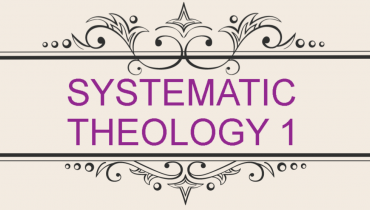In Coptic literature, Athanasius is considered the first patriarch of Alexandria to use Coptic as well as Greek in his writings (Britannica.com. retrieved 2012-09-25).
Polemical and theological works
Athanasius was not a speculative theologian. As he stated in his first letters to Serapion, he held on to "the tradition, teaching, and faith proclaimed by the apostles and guarded by the fathers”. He held that not only was the Son of God consubstantial with the Father, but so was the Holy Spirit, which had a great deal of influence in the development of later doctrines regarding the trinity (᾽αλεξανδρεὺσ τῷ γένει, ἀνὴρ λόγιοσ, δυνατὸσ ὢν ἐν ταῖσ γραφαῖσ)
Athanasius' "letter concerning the decrees of the council of Nicaea" (de decretis), is an important historical as well as theological account of the proceedings of that council. Another letter from 367 is the first known listing of all those books now accepted as the new testament (᾽αλεξανδρεὺσ τῷ γένει, ἀνὴρ λόγιοσ, δυνατὸσ ὢν ἐν ταῖσ γραφαῖσ). (Earlier similar lists vary by the omission or addition of a few books.)
Examples of Athanasius' polemical writings against his theological opponents include orations against the Arians, his defense of the divinity of the Holy Spirit (letters to Serapion in the 360s, and on the Holy Spirit), against Macedonianism, and teachings on the incarnation.
Athanasius also wrote a two-part teaching against heathenism and an explanation of the incarnation of the Word made flesh. It was probably completed early in his life, before the Arian controversy (Herbermann, Charles). In the first part, Athanasius attacks several pagan practices and beliefs. The second part presents teachings on redemption (᾽αλεξανδρεὺσ τῷ γένει, ἀνὴρ λόγιοσ, δυνατὸσ ὢν ἐν ταῖσ γραφαῖσ). In addition, Athanasius put forward the belief, referencing John 1:1–4, that the Son of God, the eternal word (logos), through whom God created the world, entered that world in human form to lead men back into the harmony from which they had earlier fallen away. His other important works include his Letters to Serapion, which defends the divinity of the Holy Spirit. In a letter to Epictetus of Corinth, Athanasius anticipates future controversies in his defense of the humanity of Christ. Another of his letters, to Dracontius, urges that monk to leave the desert for the more active duties of a bishop (Encyclopædia Britannica).
Athanasius also wrote several works of biblical exegesis, primarily on Old Testament materials. The most important of these is his Epistle to Marcellinus (pg 27:12-45) on how to incorporate Psalm sayings into one's spiritual practice. Excerpts remain of his discussions concerning the book of Genesis, the Song of Solomon, and Psalms.
Perhaps his most notable letter was his festal letter, written to his church in Alexandria when he was in exile, as he could not









